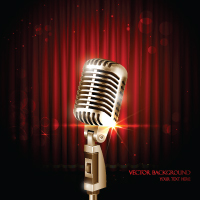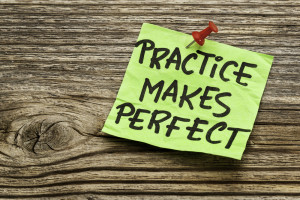Speech Tips
English Communication- Magic Phrases for Moving Among People
English Communication- Magic Phrases for Moving Among People
There are magic phrases that everyone uses to make moving among people in daily life a pleasure and which endear you to others.
Gracious politeness. Smile when you say these phrases. Smile so that your eyes are also smiling.
- Good morning. Good afternoon. Good evening.
These are the words you are most likely to hear and which you are most likely to say. Make your voice strong, so people easily hear your gracious greeting. Smile and nod.
Nod with one head gesture downward in the USA fashion for “yes.”
By the way, the USA nod for “yes” is two head gestures “up and down.”
Your culture may have a different head gesture or gestures for a “yes” gesture.
- Please and thank you.
Politeness, especially with eye contact, will endear you to those around you. Use these often. You may be trying to figure out unfamiliar customs or vocabulary. These words trigger patience in the other person, and you.
When in new circumstances, it is good to know how to ask for assistance.
Do be sure to recognize this word when you hear it around you because Americans do like to help people. Well….truth be known lots of people in the USA and other people all over our world do like to help, but not all.
- Excuse me.
Many public areas are tight with lots of people, such as airplanes, buses, hallways, crowded rooms. In English, “excuse me” can act to help you move through people, a greeting, or an apology.
- Where is ___?
Trying to find new places and locations is difficult for all people. Ask for help.
You may not be able to understand the complex answer. That is true for native-born persons, also. Your helper is likely to start pointing to help you understand the direction to go.
Keep asking people at each street intersection for directions, and eventually you will reach your destination.
- Where is the bathroom?
This will help you in public places to find these facilities in quick time instead of wandering and getting lost.
- I need ___.
We all have lots of needs. For example, we need to eat. Perhaps you need an item, a pencil or a chair. Perhaps you need medical assistance.
- Check, please.
Sometimes servers get so busy that you need to ask for the check/bill for restaurant food. You might need to catch your server’s attention by politely raising a hand and catching his or her eye, and with a smile on your lips.
- I’m allergic to___.
Sometimes we all need medical attention. This phrase is essential for good medical treatment because many people have an allergy or bad body/physical reaction to new or old medications
You might need this phrase during meals for foods hazardous to your health and well being.
- Have a fine day.
This phrase with your spoken “good-bye,” spoken sincerely, and with a smile will brighten the other person’s day.
Be sure to watch our English Speech Tips videos and Accent Reduction Tip videos for more English pronunciation and accent reduction exercise.
Check out our new advanced weekly speech tip program, our new subscription called ClearTalk Weekly, www.subscription.cleartalkmastery.com
Rerun from April 13, 2016
The Power of Standing for Presentations
The Power of Standing for Presentations
Why standing for presentations is awesome:
- There is more of you to see so you and presentation are more visually stimulating and memorable.
- You will speak louder. Louder is better. Three of four presenters speak too softly. When volume is down, excitement is down and the presentation is less interesting… and more forgettable!
Rerun from 05/02/2016
English Communication- Do These for that Important Interview
English Communication- Do These for that Important Interview
What are your critical actions during job interviews? What are critical behaviors?
These critical behaviors also apply to interviews which look like meetings where your supervisor is determining whether to promote you to a higher position (with more or different responsibility and perhaps greater salary/fee).
Here are some tips for walking away with a great first impression:
- Do look interested, ask questions and maintain eye contact with your interviewer.
- Project an air of confidence and friendliness. Use this body language– open body with arms relaxed, attentive posture, and relaxed face with genuine smile that extends to your eyes.
- To demonstrate interest in the company, ask informed questions about the job and responsibilities.
- If you feel uncertain about the impression you give in an interview, practice before a mirror before the appointment.
- Reach for the goal of feeling comfortable in the interview because that is a signal that you are knowledgeable about the company, the position, yourself, and stand poised and ready to get to work.
Be sure to watch our English Speech Tips videos and Accent Reduction Tip videos for more English pronunciation and accent reduction exercise.
Check out our new advanced weekly speech tip program, our new subscription called ClearTalk Weekly, www.subscription.cleartalkmastery.com
Rerun from 04/06/2016
Preparation- The Key to Drive Away Anxiety
Preparation- The Key to Drive Away Anxiety
The three most important words for decreasing anxiety for a presentation is “Preparation, Preparation, Preparation.”
Prepare your talk, outline it, write it out, make notes, immerse yourself in the materials. Rehearse it aloud until you are sick of it. Then do it one more time.
Rerun from 04/25/2016












